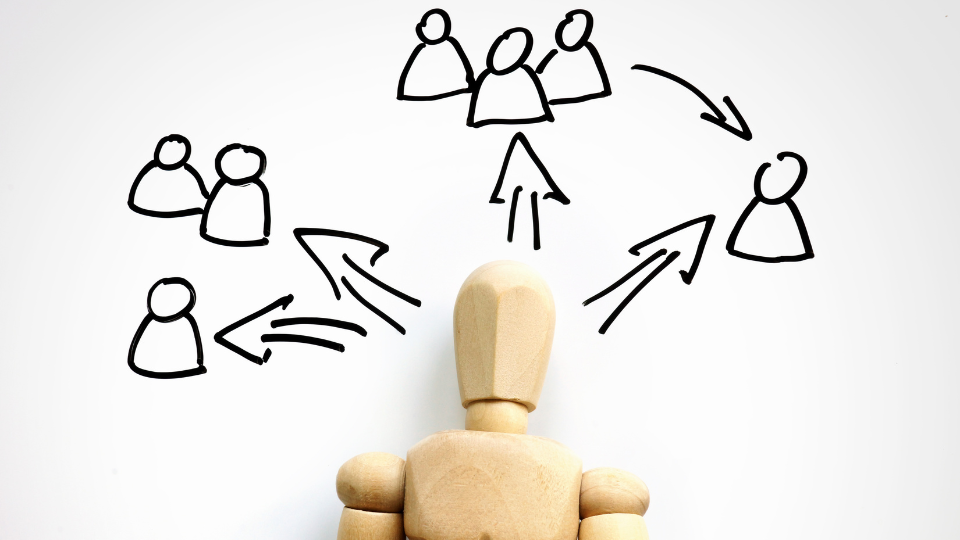With so many sophisticated challenges the global community faces, Sustainable Development Goals (SDGs) have become a practical blueprint to be adopted in organizational culture.
SDGs, as the “blueprint for achieving a better and more sustainable future for all,” emphasizes the active participation of private businesses. But is it necessary for the private sector to develop sustainability and achieve global goals by bringing it into the organizational culture?
“The role of business is about much more than creating jobs, paying taxes, and developing technology. It is also about determining the nature and purpose of business in a world where economic growth has delivered wealth alongside inequality and prosperity alongside environmental damage and climate change” – Institute for Human Rights and Business.
Sustainable development is responsible for any stakeholders that are related to the global economic and development activities. That being said, when companies support sustainability, they can grow at once, and at the same time, they contribute to addressing global challenges.
Exploring the SDGs
From what, why, and how the Global Goals are scrutinized, it will create a better understanding for any stakeholders.
What?
Adopted by all the United Nations states in 2015, the Sustainable Development Goals (SDGs) or known as Global Goals consist of 17 goals that cover multiple interlinked aspects through the universal call to action. It’s coming as a route with a mission including eradicating poverty, reducing inequality, and responsible consumption and production.
When it comes to the business sector, it helps them to take the opportunity to accelerate a lasting social impact on the world.
Why?
We have found our planet rapidly changing day by day with numerous complex challenges. Political and economic instability, the middle class’s needs to grow quickly, and the rise of inequality become the issues we have to face both now and in the future.
Those daily issues would bring impact to multiple aspects, from politics to business. Through the SDGs, an action of sustainable development will be greatly accomplished by a collective contribution.
How?
Creating an immense impact requires the massive efforts of the few and the involvement of many. Owning the same awareness of today’s urgency and intention of a better world in the corporate culture will define your scope in achieving success in more aimed ways. SDGs, however, are a route to that end, not an end itself.

The Global Goals in a Business Perspective
There’s a clear fact, that in the case of social, environmental, and governance issues, the pressure on business has never been significant.
The 2016 data of the Global Opportunity Report showed that 32% of CEOs are aware of the SDGs while 23% of others made plans to respond. But further, C-levels still have less awareness and preparedness.
As the report said, they might be conscious but never really brought the grasp to the root of the management chain. Thereby, only 5% of mid-level management committed to responding to the SDGs.
But maybe, as the major companies started to concern themselves with the Global Goals, they would be echoing others to run to the same track as they have done.
For instance, Paul Polman, the CEO of Unilever. He initiated a business model that geared towards the SDGs. It’s realized by Unilever’s 300 brands including Lifebuoy, Domestos, and Ben & Jerry’s that globally came into the SDGs’ purpose.
Through the Unilever Sustainable Living Plan (USLP), the company attempted to achieve a measurable target by operating sustainably across the business. From the operations to the whole supply chain process, the company had the mission to address environmental and social challenges.
USLP made Unilever move to sustainable sourcing. It also led the company to reduce CO2 emissions from the factories. Then recently, USLP announced that they would send waste to landfills.
To meet the goals, SDGs need to formulate strategic engagement. Not only for citizenship-related investment purposes, but also concerns on how companies can create a product, services, or business model that goes hand in hand with social wellbeing.
Could it Become a Huge Opportunity for the Company?
What is organizational culture‘s importance in bringing the concept of SDGs? Not all entrepreneurs realize that following the sustainable development principles, it could bring them enticing growth points of the business.
The 2020 research of HSBC showed that 78% of Companies in the UK welcomed the concept of Global Goals. By this, they expected an increment of sales through the year. In addition, the prediction of McKinsey may convince other companies to follow the Global Goals blueprint. There will be $3 trillion possibly earned by the company that runs with a long-term approach. The numbers cover the patterns of investment, growth, earnings quality, and earnings management.
The SDGs could conceivably give rise to business revenue and savings up to US$12 trillion by 2030 in four main sectors: energy, cities, food & agriculture, and health & well-being, according to a report of the Business & Sustainable Development Commission.
Also, SDGs generated 60 other market opportunities. From those including sustainable aquaculture and mining rehabilitation. As a result of the alignment of business strategy to the Global Goals, around 380 million new jobs are predicted to be coming up in 10 to 15 years through those four sectors.
Regarding the customer’s behavior, Global research by PwC said that around 78% of them will expectedly consider the products and services of companies that are involved in the SDGs.
The 2018 report by the United Nations explained that there were no significant results at the country level. Meanwhile, it might be the target that the UN had expected. The report further explained that the reason behind unachieved goals was that the small and medium-sized enterprises (SMEs) were not totally on board.
Then why is organizational culture important, mainly when it adopts the blueprint of SDGs? However, there are plenty of advantages to the involvement of SMEs in addressing the SDGs, including:
1. Help company recognize future opportunities
Innovation nowadays doesn’t merely come from the changes in consumer behavior, but the pressure from social enterprises that come up with sustainable solutions also makes the market more innovative. It doesn’t only cover the sustainable business process but also helps companies to find new types of solutions.
2. Make the company look attractive
In the way employees see a company, taking part in Global Goals would increase attractiveness for employers. Speaking of young talents, they will consider enterprises that take social responsibility more than those that don’t. Chances are, potential employees would likely join the company that has an orientation towards sustainability goals.
3. Building synergy and partnership
There will be unifying elements built up through new partnerships and synergies as companies work together to succeed in the SDGs.

How SDGs Could Benefit the Private Sector?
There are a lot of things proving how SDGs could benefit the private sector. Here are some reports and studies that try to analyze it.
Forbes from the article “New Generation, New Values: Sustainable Development Goals Help Businesses Grow” revealed that investing in sustainable areas could lift the business results of several companies.
The Forbes’ observations could lead the fact to the reasons for the values of Generation Z.
Facts tell that two out of three consumers prefer to choose sustainable brands than any other generation of consumers. The consumption pattern and behavior settle up as the value agenda on the planet rises.
Employers have to be aware that one day, the “Zoomers”, those who were born between 1997 to 2021, will become either their customers, clients, or even employees, as stated by the Pew Research Center.
Another study, “Forget Millennials, Gen Z is the new golden child,” moreover explained that “Zoomers” likely have a soaring intention and motivation to create a better future for the world. Through that, the younger generation will look for purpose-driven companies, especially in sustainability.
In 2019, the study revealed that 77% of Gen Z respondents (it was formerly 65% in 2017) were more interested in a company that has sustainable activities, particularly on business processes that don’t put the environment at risk.
According to the Forbes article, another study revealed that numerous employees were likely to work for a company with strong environmental policies, and the number reached 65%.
What’s more, the 2019 study in the U.K gave the details of 26% of employees who agree to get lower salaries from their employers as long as the company prioritizes environmental protection. Unexpectedly, 50% of them consider turning down a job offer if they find the company runs an environmentally harmful business.
In terms of job seeking, about 72% of respondents (aged 23 to 38) would first and foremost, probe the possibility of the environmental impact made by the company before they apply for a job.
We could have a sight that a vast majority of companies’ business models, products, and services have not met the Global Goals purposes. Meanwhile, the sustainability report still doesn’t go in line with the power of the private sector. The solution may come to the way how the private sector develops KPIs, targets, or any possible indicator to be integrated into the SDGs.







